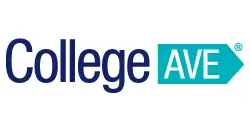Private student loans
Student loan companies set their own interest rates, often giving you a choice between a fixed or variable rate. Private lenders examine your financial credentials, such as your credit score and annual income. You might need to apply with a cosigner if you can’t qualify independently.
Borrowers generally have more flexibility with private student loans. Instead of being assigned a fixed-rate federal loan with a standard 10-year term, you might opt for a variable rate and a shorter or longer repayment plan.
Private education debt also tends to have a higher borrowing limit, allowing you to cover any gaps in your school’s cost of attendance. That said, it’s wise to only borrow what you need — and what you can afford to repay. Estimate your potential monthly dues using today’s rates and a student loan repayment calculator.
Federal student loans
The Department of Education issues federal student loans, with Congress determining the fixed interest rate each year. You won’t need to pass a credit check to qualify for most federal student loans, although PLUS loans require a review of your credit report to look for adverse credit history.
Federal loans are also eligible for a variety of repayment plans, such as income-driven repayment, deferment and forbearance, and various student loan forgiveness programs. However, you can’t borrow an infinite amount of federal loans — once you reach the federal student loan limit, you’ll need to consider additional ways to cover any remaining expenses.
How to maximize federal and free financial aid
Because federal student loans carry such wide-ranging repayment flexibility, it’s recommended to max out your federal loan allotment before resorting to a private student loan.
The Free Application for Federal Student Aid (FAFSA) is the gateway to federal loans and other aid programs. After completing the FAFSA, you’ll be eligible to accept loans offered by your school — but only up to the annual limit. Be sure to look for work-study opportunities and other grants listed on your financial aid award letter.
